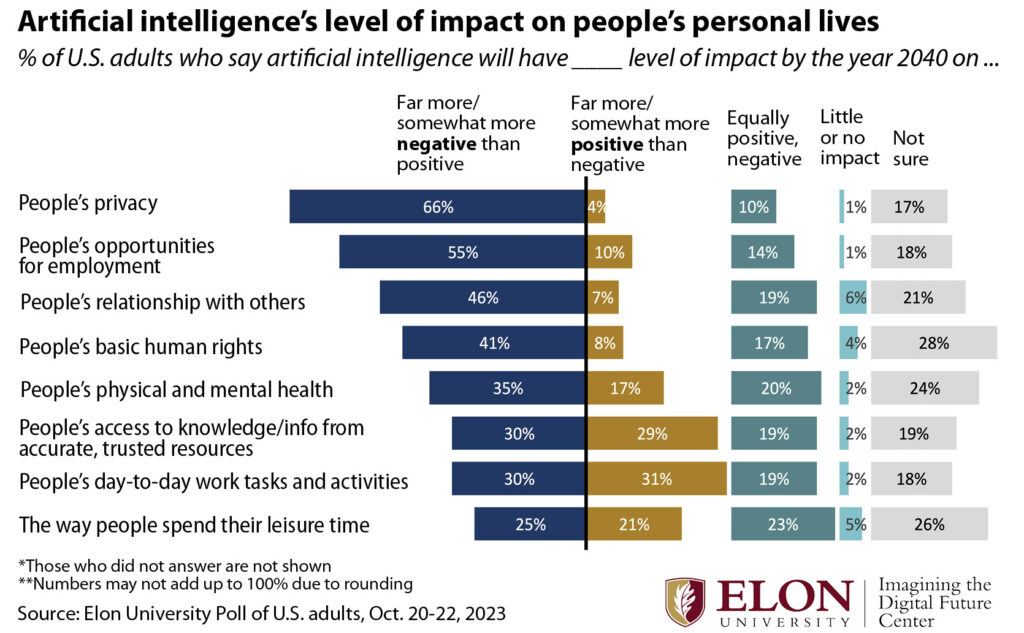As Americans begin to encounter artificial intelligence (AI) tools in their daily lives, they are wary about the impact these technologies could have by 2040.
They are especially concerned about the continued erosion of personal privacy, their opportunities for employment in the AI age, how these systems might change their relationships with others and the potential impact on basic human rights.
Americans have more optimism about AI’s potential effect on day-to-day work activities and people gaining greater access to accurate knowledge and information.
At the same time, many people say they are either not sure what lies ahead as AI expands, or they expect both positive and negative impacts.

The chart depicts a survey conducted by the Elon University Poll of U.S. adults in October 2023 about the level of impact that artificial intelligence is expected to have on people’s personal lives by the year 2040. The chart shows the percentage of people who said that artificial intelligence would have a positive or negative impact on various aspects of their lives.
Here is a breakdown of the results for each category:
People’s privacy: 66% of respondents said they believe AI will have a negative impact on their privacy, while 49% said they believe it will have a positive impact.
People’s opportunities for employment: 55% of respondents said they believe AI will have a positive impact on job opportunities, while 18% said they believe it will have a negative impact.
People’s relationship with others: 46% of respondents said they believe AI will have a negative impact on their relationships with others, while 21% said they believe it will have a positive impact.
People’s basic human rights: 41% of respondents said they believe AI will have a negative impact on human rights, while 28% said they believe it will have a positive impact.
People’s physical and mental health: 35% of respondents said they believe AI will have a negative impact on physical and mental health, while 24% said they believe it will have a positive impact.
People’s access to knowledge/information from accurate, trusted resources: 30% of respondents said they believe AI will have a positive impact on access to information, while 29% said they believe it will have a negative impact.
People’s day-to-day work tasks and activities: 30% of respondents said they believe AI will have a positive impact on day-to-day work, while 24% said they believe it will have a negative impact.
The way people spend their leisure time: 25% of respondents said they believe AI will have a positive impact on leisure time, while 26% said they believe it will have a negative impact.


